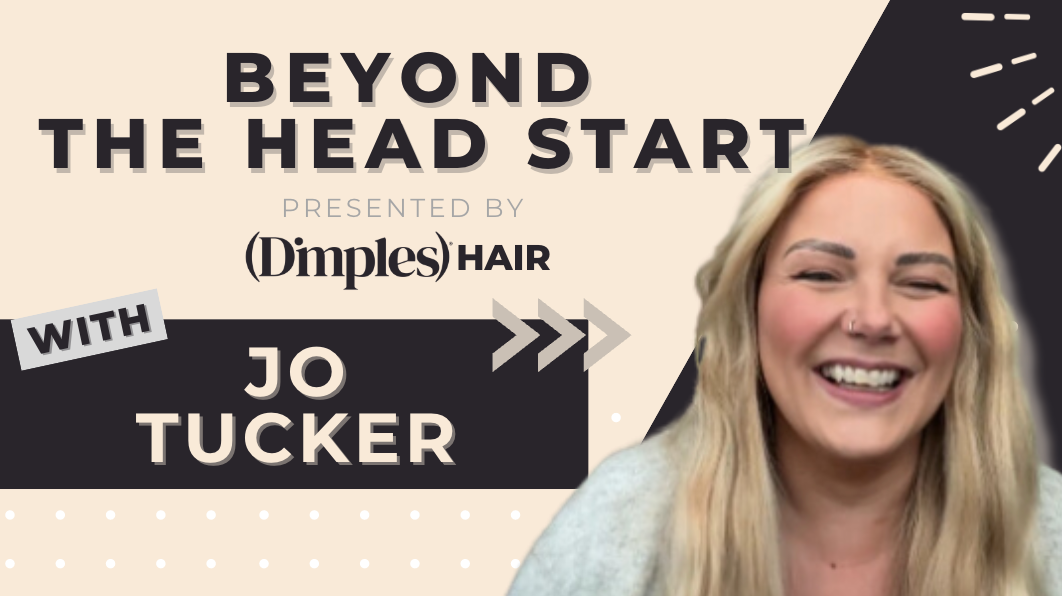
When I Got into ACCEPTANCE I Stopped Looking for the SOLUTION | The Story of Jo
In a candid and heartfelt conversation between James and Jo (#BALDMOTHERTUCKER), we get a glimpse into Jo's remarkable journey dealing with hair loss.
How do you manage to juggle a full-time job while being a full-time single mom of three daughters, while making so much hair content?
I don't get much sleep. I'm just good at multitasking. That's what it comes down to—being able to manage various tasks efficiently. I've honed this skill as a parent; it's a necessity. Despite the appearance of order in the neatest part where I'm sitting, there's chaos around me, though you can't see that.
So, yeah, you just handle what needs to be done and carry on. Most people liken me to a duck. You know, like ducks—they appear calm on the water's surface, but underneath, their legs are paddling furiously. I think that's a perfect description.
Would you mind sharing your journey with us? I understand it started around five and a half years ago. Could you provide more details about what happened during that period?
I'd had my third daughter, um, and she was about 11 months old. I felt like I'd been run over—like I was pretty rubbish. I had just come back to work, and my body was just going through a lot due to hormones and everything. I found a bald patch on the side of my head, a completely circular one behind my ear. I didn't panic because when I was pregnant with my second daughter, I experienced anemia and some hair loss during the pregnancy.
I had some medicine then, and everything got better. Everything grew back, so I wasn't too worried. However, I went to the doctor to get some blood tests done. This was just before Christmas. I specifically remember him saying, 'You are not a priority; there's no need to panic. Just schedule an appointment when they can fit you in.' So, I did that, and fortunately, they could see me right away. After the blood tests, we had the Christmas break, and I had a follow-up appointment in the New Year. Within that two-week timeframe, during the holidays, all of my hair had fallen out. Literally, everything. So, I went back to see him wearing a bobble hat because I hadn't bought a wig yet. When I took it off, his face was just in shock.
All I had left were a few crazy, old man-like, wiry bits of hair. The rest had completely gone. I think I just cried in his face; I didn't know what was happening or what was wrong. I feared it was something really serious. In the shower, I would pull the shampoo through my hair, and a clump would come out, thick like a rat's tail. It was a surreal experience. I could see the hole on my scalp where the hair was, but I couldn't feel it. It wasn't painful, just incredibly weird. I tried to stop brushing my hair because every day, my hairbrush was full—completely full of hair. I was shedding everywhere. I tried to wash it less frequently, every other day or so, to minimize the hair loss.
I felt that if I could draw a line at this point, I could manage it. I kept telling myself, 'It's completely out of your control.' The lack of control was causing panic. If it stopped at this point, I thought I could handle it and wear a jaunty scarf for a few weeks. But it didn't stop, and that was the worst part. I always say now to people who talk to me about their hair loss that losing it was far worse than having lost it. The panic of not being able to control it was absolutely horrendous. And once it had all gone, I couldn't have been balder. I had literally lost everything—facial hair, body hair, everything. It was surreal.
The first year was the weirdest. I was quite desperate to find a solution initially—trying lotions, potions, even rubbing nettle soap on my head and dancing naked under a full moon. If someone had suggested it, I would have tried it. It was probably slightly after the first year that I fell more into acceptance. Once I accepted it, I stopped looking for a solution. Trying to control and solve it was stressful, but you can't force your body to comply; it's just doing its own thing.
I'm just trying to keep up with these amazing insights you're sharing. There's so much valuable information here. Did you consult a general doctor initially about this, or was it a specialized doctor?
Yeah, it was a GP, a general practitioner. He had definitely encountered cases like mine before. However, I don't think he expected my hair loss to happen so rapidly. Alopecia presents in various forms, and as I've heard, some people experience rapid hair loss, while others have a slower progression over a year or more, with thinning and fading.
I felt like a bit of an anomaly because my hair loss happened so swiftly. I could sense that the GP was genuinely taken aback. He didn't quite know how to proceed since there wasn't a definitive medical solution. He conducted blood tests, and thankfully, the results indicated that I wasn't facing a life-threatening condition. He had done his due diligence, so to speak. It was then that he referred me to a dermatologist, although even they couldn't offer a concrete solution.
So, he said the words that you quoted, "You are not a priority. Don't squeeze yourself in."
Yeah, exactly. He handed me a printout on alopecia areata, which depicts the circular patchy hair loss. It stuck with me because he was very reassuring, emphasizing that I shouldn't panic over it. The printout even stated, "Worrying may increase hair loss," which, of course, didn't help because, at that point, panic was inevitable. The stress that comes with this panic doesn't aid the situation, you know?
It's challenging to stay calm in such situations, especially when it's all uncharted territory. It hadn't happened before, and it felt like it shouldn't. Nobody immediately reassured me, saying, "It's okay, you're not dying. Here's a lovely wig." It was just sheer panic.
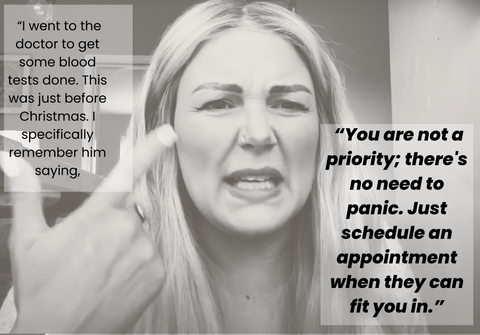
I understand that doctors prioritize their patients based on various factors, but it is disheartening to hear what happened.
It's because it isn't deemed life-threatening. I think that's why there's so little research that's gone into it on the whole. It's not like being diabetic, which is autoimmune as well, but that can be life-threatening. Other conditions take precedence. Hair, while being way more than just hair, is often perceived as just that. It's very hard for somebody to understand how it impacts every aspect of your life every day.
For instance, when I get a cold, I realize I have no nose hair, and dealing with a cold becomes a challenge. Snot just whizzes out of my nose, like a sudden 'nose condensation.' No eyelashes mean constantly dealing with debris in my eyes, especially when wearing contact lenses. Hay fever becomes a bigger hassle because everything just goes right into my system. These little things people initially overlook when they say, "It's only hair."
The absence of something makes you realize its importance. After five and a half years, I now experience unexpected changes in hair growth. Armpit hair, big toe hair, and some leg hair appear randomly. However, I still cannot grow eyelashes or eyebrows, which would be more useful.
I just want to confirm. It was after your third daughter that you found the first patch. Did you ever, in any of your pregnancies, experience postpartum depression?
No, I found all my pregnancies difficult. It physically slowed me down, which was frustrating. I didn't enjoy pregnancy like some people do. I found it frustrating that I couldn't put my shoes on properly. I got tired quickly. I had morning sickness for the first few months with all three. My second daughter, I, was anemic during that pregnancy, which took a toll on me. So, I did find a couple of patches during that time.
I agree that losing something is much worse than already having lost it.
Yeah, it's the lack of control because you know it shouldn't happen. We have hair for reasons. Also, I struggle to regulate my body temperature without enough hair. It's a weird sensation. Losing hair makes you think about it constantly because it's physically coming out. It's a horrible feeling because you can't stop it.
I remember you mentioned trying various products and solutions in a desperate attempt. It's heartbreaking to hear how you felt seeing your hair slipping away.
Absolutely. I tried anything and everything—lotions, potions, hair growth serums, sprays, shampoos, even minoxidil. I was desperate to stop it. But it just wanted to fall, and it did painlessly. It was as if the hair had already made up its mind.
I want to capture your journey in bullet points, like Ikea furniture instructions, just to summarize it. We have to find out, panic, try to solve it, wig discovery, and then accept. Is that accurate?
Yes, exactly. The wig discovery was a significant step before acceptance. It bridged the gap for me when I wasn't ready to be bald yet. I associated wigs with illness and older people initially, but they became a solution that allowed me to carry on with life.
Absolutely. I initially saw them as a temporary fix, thinking my hair would grow back quickly. I couldn't stop my life, so the wig became a temporary solution. It allowed me to carry on with my responsibilities.
How important is it to ensure a positive experience with wigs, especially for individuals who have lost their hair? Can you elaborate on how an expensive wig fresh out of the box may still appear wig-like, regardless of its price point? What factors contribute to people feeling apprehensive about wearing wigs, even if it could be a solution for them? How can individuals make wigs their own and have a positive experience with them, particularly when dealing with the emotional aspects of hair loss?
Oh, yeah, yeah. No, absolutely. Like I think the most expensive wig, I won't discuss brands, but the most expensive wig I had was about 6,000 pounds worth. And yeah, fresh out the box, it would look just as wiggy as a, uh, 2000-pound wig, or 1000-pound wig, or, or less. It just, yeah, wigs. You need to, I think, as well.
Sometimes people receive the wig, and they're actually, um, almost afraid of it. It's like this entity that comes out of the box, and they, um, they are too scared. They're scared they're going to break it because, obviously, they're not familiar. Um, and they're scared to kind of rough it up a bit, really. And I think that the, you know, it's really important to, um, you know, make it your own because I really believe that people, um, should have a positive wig experience, because actually, if, if you're, if you've lost your hair for whatever reason, it's traumatic enough, and then if you try a wig because you feel that would help you, um, and then your wig experience was like really rubbish as well, then you just, it's like a double whammy.
I wanted to touch on phase two of this journey that I often see with many women. It's about finding the right type of hair, the perfect wig or topper. I've heard stories of women buying eight or nine toppers from different companies before finding the one that suits them. It's quite a process.
Yes, I can relate to that. After my initial consultation, I realized there were aspects not covered in the consultation. You don't know until you know if that makes sense. When someone asks about the best blonde wig, certain shops might push their most expensive human hair blonde wig. It's crucial to consider one's lifestyle. Synthetic wigs, for instance, can be a lifesaver during busy times.
It's about helping people understand why certain features matter, like a lace front for a more realistic hairline. Education is key, not just in choosing the right wig but also in caring for it. There's a lot of misinformation out there, and it's important to be discerning about the sources of information.
There's a wealth of information available, but not all of it is accurate or suitable for everyone. It's crucial to be cautious about where you get your information, as misinformation can lead to damaging your wig, much like the experience I had with a guitar. It's a vast journey, and we could discuss wig care and more for hours.
Absolutely. It's essential to spread awareness about the right care and handling of wigs and to dispel misinformation. Sometimes, the wrong information can lead to irreparable damage. Asking questions and seeking reliable sources of information are key in this journey.
There's a lot of misinformation out there. So, I wanted to ask you about when you started to become open about your hair loss. Did you ever have a phase of hiding it, or were you always open about it? I mean, you've been very vocal and transparent, helping so many women. You deserve a thousand pats on the back for the vulnerability and courage you've shown in discussing this across all your platforms. Can you share when this shift towards openness occurred?
I was always open about it from the start. My hair had a grown-up pixie cut, and when it fell, it was a noticeable change. I opted to buy the hair I wanted, going longer to about this length. It was evident to me, although not everyone might notice right away. I didn't want people to speculate or assume I was unwell, especially concerning my daughters. I started the Instagram page the day I got the wig, and I also shared it on my personal Facebook. I wanted to be open, allowing people to choose if they wanted to learn more.
I didn't want to hide the fact that my hair had changed dramatically. It was a circumstance beyond my control, and I felt it was essential to address it openly. The only hiding I did was trying not to cry in front of my kids too often. It was a devastating experience, and tears were shed frequently during conversations, even at work. Humor was my coping mechanism, but being open about it helped me manage the emotional aspect. The overwhelming and supportive response from everyone was unexpected but heartwarming.
Hair has become an extension of your outfit choice, and that's a wonderful perspective.
Yes, exactly. If I had hair, I would have to accept it as it is. However, not having hair allows me to match different hairstyles with various outfits. It's a strange thing to explain, but it's a unique experience.
In our previous conversation, you mentioned four types of women dealing with hair loss. Can you elaborate on that?
Certainly! The first type is the completely open, oversharer, like myself, who is perfectly comfortable discussing and showing their hair loss. The second type is the total incognito, someone at the other end of the spectrum who isn't willing to disclose that they wear hair, maintaining the same style and not allowing anyone to see them without it. The third type is those who choose not to wear hair at all, fully embracing their natural look. They find contentment in it, which is incredibly brave. The fourth type, if I recall correctly, involves those who want to blend in and maintain a recognizable appearance, often utilizing toppers or extensions to enhance their existing hair.
It's fascinating to see the diverse approaches people take. And I've encountered women who want to maintain their own hair, even if it's a minimal amount, using toppers.
Absolutely, it's about finding what makes you comfortable and confident in your own skin.
Jo, if you could give THREE tips to someone new with hairloss, what would you say?
I would The first tip is the the reassurance of the however horrendous you feel you won't feel that way forever, like it genuinely will get better, which actually you don't want to hear at that point because people used to say that to me and I'd be like, ah, go away, I don't want to know that but it genuinely will, and actually feeling better from the inside out helps tremendously, so it will come.
I think the second one is... Know your head size, measure your head, know where you're at head size, because it's wildly important for fit if you choose to wear hair, so it's just a really important factor because hundreds of people have no idea, thousands of people have no idea of their head size, I had no idea, and I think once you know where you sit, it gives you an insight into what you could start looking for and I think the third is Actually, don't rush yourself if, don't feel that you have to be okay with it earlier than you are, it just, everybody everybody deals with it in their own way and they deal with it in their own pace as well.
I think the only thing I would say is... If support's offered, go towards the support, look for support, because there are some really wonderful places that you can actually meet people that have experienced the same thing, or professionals that might be able to offer some kind of mental support.
I think mental health support is really important because as well as it being a physical visual thing, I think the stuff that goes on inside your head in dealing with it that's a really good place to start as well for some comfort for sure
Some of JO's favorite Dimples Wigs and hair care products



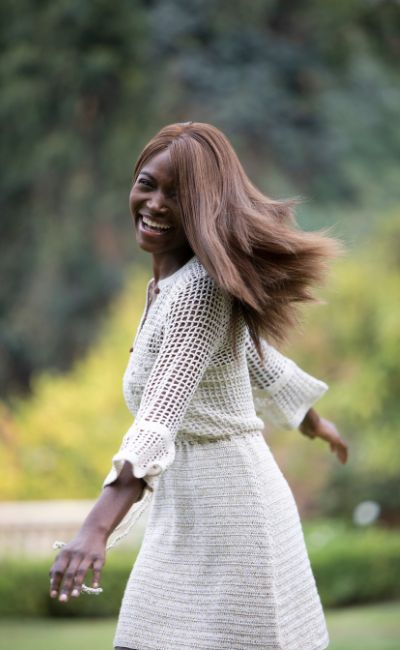



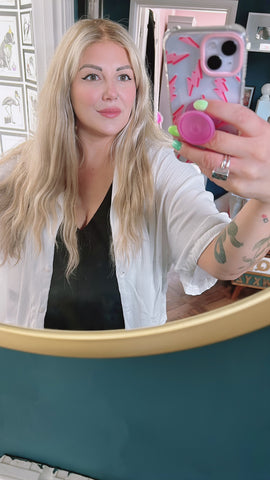
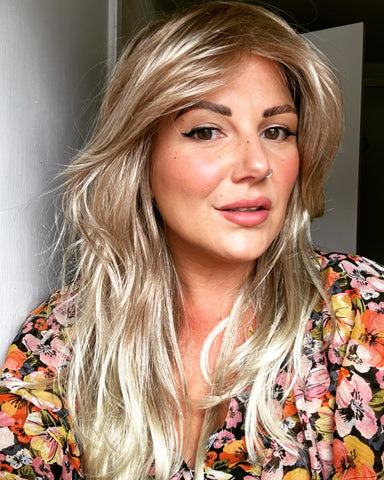


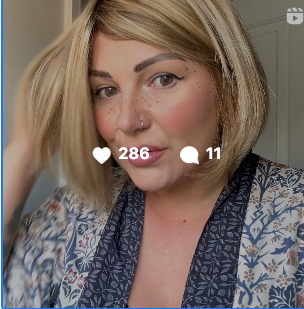




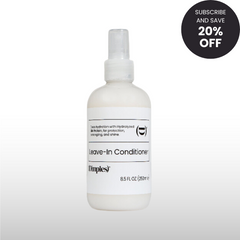
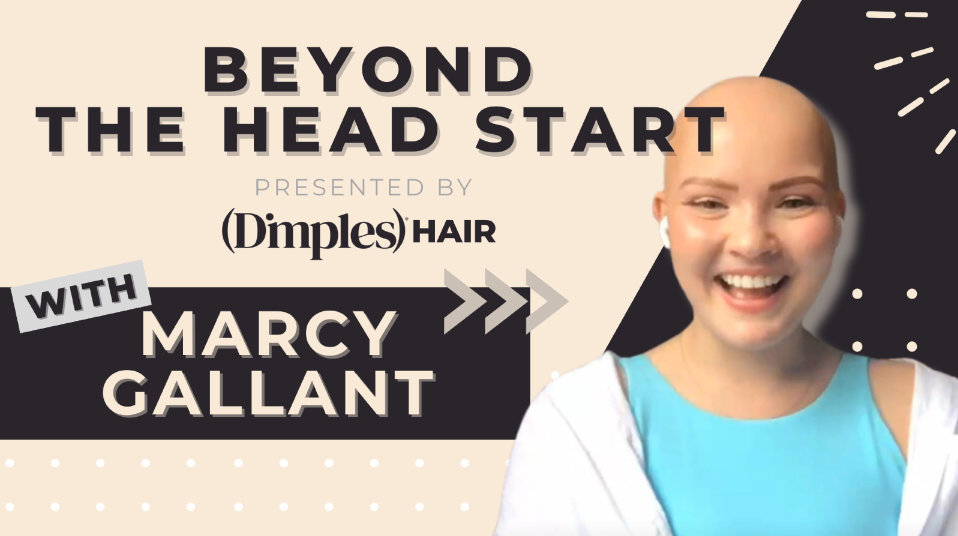
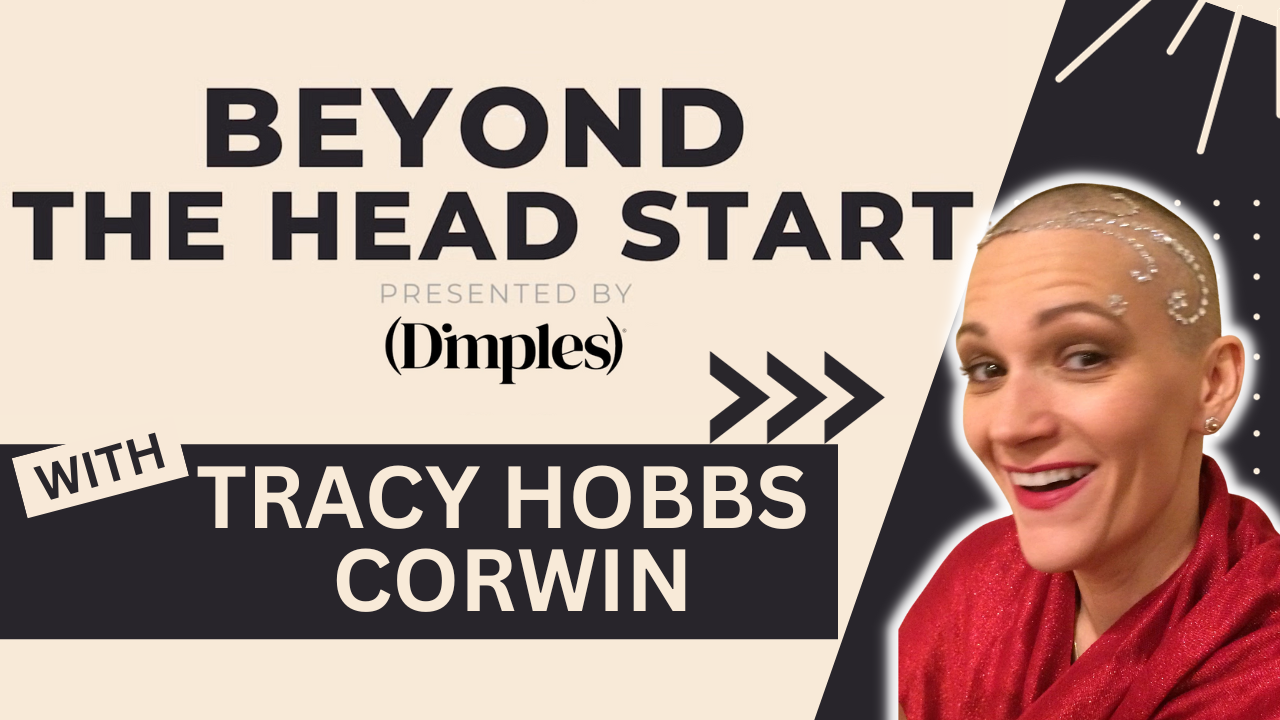
Leave a comment
This site is protected by reCAPTCHA and the Google Privacy Policy and Terms of Service apply.